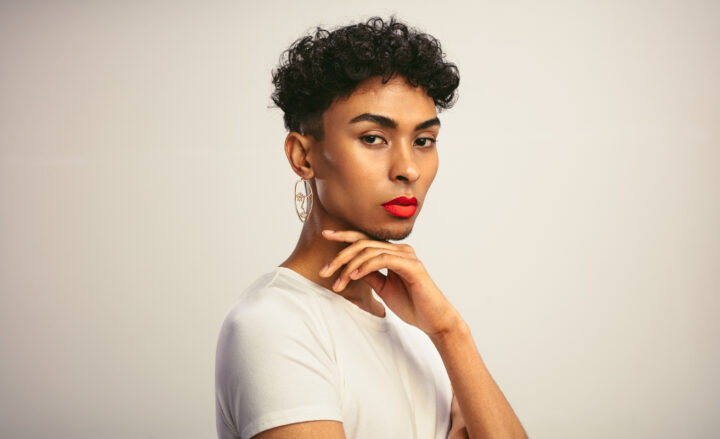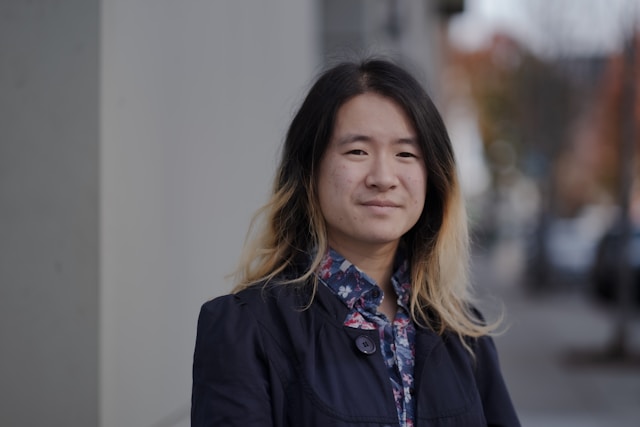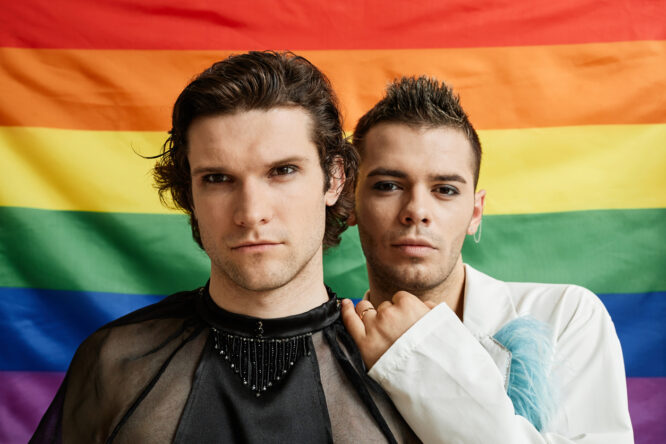
Most people don’t mean harm when they say something awkward to a trans person, but that doesn’t mean it doesn’t sting. Even well-meaning questions or comments can come off as invasive, dismissive, or just plain exhausting. And while it’s okay not to know everything, it’s also on all of us to learn how to talk to people with respect. If you want to be supportive without being clumsy, here are 13 things that are better left unsaid.
1. “So, what’s your real name?”
Asking someone for their “real” name might sound harmless, but it completely undermines the name they’ve chosen and live by. It sends the message that who they are now isn’t valid or fully real, which is both insulting and unnecessary. If someone wants to share that part of their past, they’ll do it on their own terms. Otherwise, their current name is their real name. That should be enough.
2. “You’d never know you’re trans!”
This is often meant as a compliment, but it really isn’t. What it says, without meaning to, is that trans people only deserve praise if they don’t “look” trans. It turns someone’s identity into something to be hidden or corrected. Trans people aren’t here to meet anyone else’s standards of how they should look. Whether someone blends in or stands out shouldn’t determine how much respect they’re given.
3. “So, have you had the surgery?”
This is way too personal and way too common. You wouldn’t ask a stranger about their genitals or medical history, so don’t ask a trans person either. It’s invasive, and it reduces someone’s whole identity down to their body. Being trans isn’t about one surgery, or any surgery. Some people transition medically, some don’t, and none of that changes who they are. If they haven’t brought it up, don’t dig into it.
4. “I’d date a trans person, but only if they told me first.”
Framing attraction around conditions like this often comes from a place of discomfort, not openness. It implies that being trans is a dealbreaker unless someone discloses it in advance, which ignores the fact that trans people don’t owe anyone their personal history unless they choose to share it. It’s okay to have preferences, but if you only see trans people as a “type” you’d consider under strict rules, it’s worth checking where that discomfort is really coming from.
5. “You’re so brave!” (when said out of nowhere)
Sometimes this is meant kindly, but when it comes out of the blue, it can feel like you’re making someone’s entire existence into a struggle story. Not every trans person wants to be seen as a symbol of resilience just for living their life. It’s different if you’re close and someone’s shared something deeply personal with you, but don’t project bravery onto someone who’s just getting on with their day. They might not want to be your inspiration.
6. “I just don’t get it, but I support you!”
You might think this sounds open-minded, but it still centres your confusion and makes it clear you see their identity as something foreign. Saying “I don’t get it” might feel honest, but it can be hurtful when it sounds like you’re choosing not to try. You don’t have to fully understand someone’s experience to treat them with dignity. You just have to trust that they know themselves better than you do.
7. “You don’t look trans”
Again, this might be intended as a compliment, but it’s not. It suggests there’s a certain way trans people should look, and that not fitting that image is somehow better. That kind of thinking quietly reinforces stereotypes and shames people who don’t match them. There’s no single way to “look” trans. People present in all kinds of ways, and every expression is valid. Appearance shouldn’t be a litmus test for how trans someone is.

8. “You must’ve had a hard life.”
This one comes from a place of pity more than support. While it’s true that many trans people have faced real challenges, reducing someone to their pain or struggle can feel dehumanising. Not everyone wants to be seen as damaged or defined by adversity. If someone shares part of their story with you, listen. But don’t assume someone’s whole life has been a tragedy just because they’re trans. That’s not fair, and it’s not your story to write.
9. “When did you decide to be trans?”
Framing someone’s gender identity as a decision oversimplifies something deeply personal. Did you wake up and decide to be cisgendered? No. Trans people don’t just decide one day to choose a new identity; they uncovered it through time, reflection, and often a lot of inner work. It’s not a phase or a whim. Gender is complex, and people deserve the space to define themselves without being treated like they made an impulsive choice.
10. “I can’t keep up with all the pronouns.”
This usually comes off as lazy or dismissive, even if it’s meant as light-hearted. If someone tells you their pronouns, it’s not a test. It’s just basic respect. You remember people’s names, job titles, and coffee orders. You can remember this too. Getting pronouns right isn’t about political correctness; it’s about seeing someone for who they are. If you mess up, apologise and keep trying. That’s all anyone’s asking for.
11. “Are you sure this isn’t just a trend?”
This question invalidates someone’s entire sense of self and lumps their identity in with whatever headlines you’ve been seeing. Being trans isn’t a fashion statement or a social phase. It’s a real and lived experience that’s always existed, even if more people are open about it now. Just because you’re hearing about it more doesn’t mean it’s new. It just means people finally feel safer being visible, and questioning that visibility doesn’t help.

12. “You’re not like other trans people.”
This is a classic backhanded compliment. It might sound positive, but what it really does is pit trans people against each other. It says, “I’m okay with you, but not people who are louder, prouder, or different from what I’m used to.” No one wants to be accepted conditionally. If you support trans people, that support shouldn’t stop the moment someone makes you uncomfortable. Being inclusive means embracing variety, not just the versions that feel easiest to understand.
13. “I’ve never met a trans person before!”
You probably have, but you just didn’t know. Saying this might feel like you’re being honest or open-minded, but it can make someone feel like an exhibit or novelty. No one wants to be treated like a rare experience you’re collecting. It’s okay to be new to the conversation. Just don’t make someone else’s identity feel like something shocking or unusual. They’re not a first for themselves. They’re just a person, living their life.




